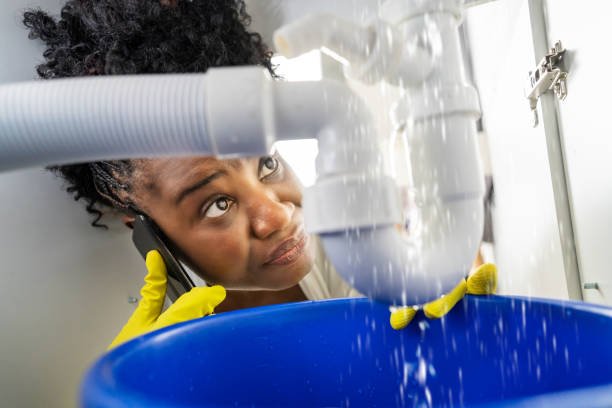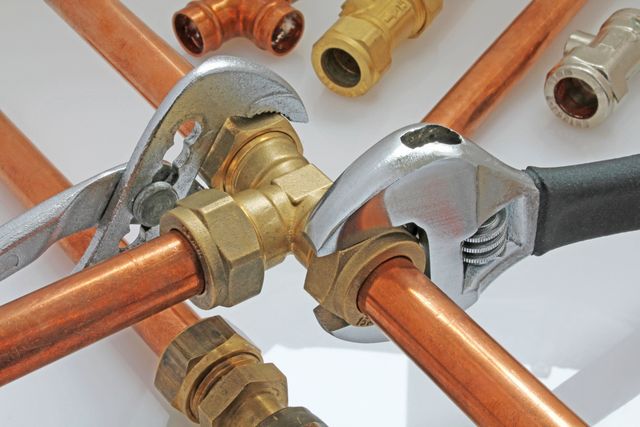Emergency Plumbing Fixes to Use Until Specialist Help Arrives
Emergency Plumbing Fixes to Use Until Specialist Help Arrives
Blog Article
Are you trying to locate facts and techniques around What to Do While Waiting for an Emergency Plumber?

Pipes emergency situations can strike at any moment, triggering anxiety and possible damages to your home. Whether it's a burst pipe, a stopped up drainpipe, or a dripping tap, knowing how to handle the scenario till a specialist plumbing professional arrives can save you from additional issues. This write-up gives essential emergency pipes tips to help you reduce damage and gain back control throughout a pipes situation.
Switch off the Water
The first step in any kind of pipes emergency is to shut off the water supply. For local problems, such as a leaking faucet or toilet, switch off the shutoff near the fixture. When it comes to a major leakage or burst pipeline, locate your home's primary water shut-off valve and transform it off immediately. Understanding the place of these valves ahead of time can save beneficial time throughout an emergency.
Address Tiny Leaks with Short-lived Repairs
Small leakages can quickly become significant issues if left unattended. Utilize these momentary repairs up until expert assistance arrives:
While these solutions aren't permanent, they can help lessen water loss and damage.
Unclog Drains Pipes Safely
A clogged up drain can be a discouraging and messy problem. Here's exactly how to tackle it:
If these methods do not function, prevent utilizing excessive force, as it might get worse the clog.
Take Care Of Overflowing Toilets
An overflowing toilet can cause immediate chaos. Here's what you should do:
Shut Off Your Water Heater
In certain emergencies, such as a burst pipe, it's wise to shut off your water heater. This prevents getting too hot or damages to the system when water stops streaming. Shut off the power supply to the hot water heater (electrical or gas) and allow it cool off to prevent prospective hazards.
Temporarily Stop a Ruptured Pipeline
A ruptured pipe can result in significant water damages in mins. To alleviate the problem:
Call a professional plumber immediately to address the problem completely.
Take Care Of Frozen Pipes Meticulously
In cooler environments, icy pipes are a typical emergency. If you suspect an icy pipeline:
Prevent More Damage
Taking quick activity to lessen damage can conserve you money and time over time. Here's just how:
. Have an Emergency Pipes Kit
Prepare a standard plumbing emergency situation set to handle small issues effectively. Your set should consist of:
Having these tools handy can make a substantial difference in your capacity to take care of emergencies.
Know When to Call a Specialist.
While quick fixes can assist momentarily, certain pipes issues need prompt expert focus. Call a plumbing if:.
Without delay contacting an expert makes certain the issue is fixed properly and protects against more problems.
Final thought.
Pipes emergency situations can be overwhelming, however with the ideal expertise and tools, you can handle the circumstance properly until help shows up. By shutting off the water, resolving tiny leakages, and using short-term repairs, you can lessen damages and maintain your home safe. Remember, these tips are short-term services; constantly get in touch with a qualified plumber to handle the origin of the trouble. Prep work and quick thinking are your best allies in any pipes emergency situation.
8 Helpful Tips for Managing Plumbing Emergencies at Home
If your plumbing system hasn’t failed once, wait for it because almost everyone has a story to tell. Sometimes, it could be simple emergencies such as a leaking pipe, a blocked cistern, or even a big burst pipe. In situations like this, you need to have some handy tips to save you some money and from possible damages.
Take care of minor issues early.
Sometimes, you could have avoided an emergency by taking proactive measures while it was still early. Some major plumbing emergencies can be a result of an ignored minor issue. We recommend that you have items like plumbing tapes and other related items. A plumbing tape can allow you to manage minor leaks before the plumber arrives.
Cut off the water supply.
This tip is essential in almost any type of leakage problem. For problems like minor leakages in the toilet or kitchen, turn off the supply that takes water to the affected pipes. If the leakage is a major pipe, you must shut off the supply valve to the entire building. This will help you avoid flooding your home and neighbors if you share a flat.
Know your plumbing system
Folks typically move into a new apartment without understanding the water supply around the building. This can prove disastrous if a water emergency arises and the plumber is far away. The previous tip will prove useless if you don’t practice this one. More importantly, know where your water shut-off valve is located – you’ll need that knowledge to prevent potential home floods.
Have some common handy tools
There are lots of plumbing emergencies that you can handle without hiring a plumber. That’s why you must keep some tools available always. Some tools that you can use to fix simple plumbing emergencies easily include plumbing tapes, screwdrivers, thread seal tapes, plungers, pliers, tape measures, and rubber gloves.
Insulate your pipes from cold
You’ll save yourself from many plumbing expenses if you protect your water pipes from the cold. This is because of the harmful effects that cold weather can have on your pipes. During winter, your pipes can burst from being overly expected to freezing temperatures. So, make sure insulators are there to keep the pipes working correctly.
Avoid practices that will clog your toilet.
Many people indulge in practices that can damage the plumbing system of the entire building. One of these is when they use their toilet to dispose-off garbage. They flush all kinds of things, such as paper towels, bandages, hairs, female sanitary products, etc., down the toilet. This will block your toilet in the long run, incurring unnecessary expenditures. Dump such waste in the trash instead.
Check your dials regularly.
Sometimes, there could be leakages in your home without noticing them in time. So, constantly monitor your water meter dial. If the dial is reading when there is nobody using water, this is an indicator that there is leaking. Check for leaks immediately. Call a plumber as soon as possible if you can’t find any.
https://www.constructionplacements.com/8-helpful-tips-for-managing-plumbing-emergencies-at-home/

Hopefully you enjoyed reading our article on . Thanks for taking the time to read through our piece of content. For those who enjoyed our article please be sure to pass it around. We enjoy your readership.
Click Here Report this page